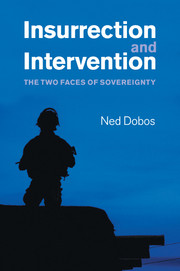Book contents
- Frontmatter
- Contents
- Acknowledgements
- Introduction
- Chapter 1 Communal self-definition
- Chapter 2 Costs and consequences
- Chapter 3 Asymmetries in jus ad bellum
- Chapter 4 Asymmetries in jus in bello
- Chapter 5 Humanitarian intervention and national responsibility
- Chapter 6 The issue of selectivity
- Chapter 7 Proper authority and international authorisation
- Conclusion
- Select bibliography
- Index
Chapter 4 - Asymmetries in jus in bello
Published online by Cambridge University Press: 05 November 2011
- Frontmatter
- Contents
- Acknowledgements
- Introduction
- Chapter 1 Communal self-definition
- Chapter 2 Costs and consequences
- Chapter 3 Asymmetries in jus ad bellum
- Chapter 4 Asymmetries in jus in bello
- Chapter 5 Humanitarian intervention and national responsibility
- Chapter 6 The issue of selectivity
- Chapter 7 Proper authority and international authorisation
- Conclusion
- Select bibliography
- Index
Summary
The principle of discrimination prohibits the targeting of innocent civilians in war. It does not, of course, say that civilians must not be harmed under any circumstances – such a principle would effectively demand pacifism. Rather, it says that civilians must not be harmed deliberately. There may be cases where an attack on a legitimate military target would kill or maim civilians concomitantly. As long as the non-combatant casualties are ‘merely foreseen’ and not intended, the Doctrine of Double Effect stipulates that the attack is justified as long as it also satisfies the conditions of necessity and of proportionality (that is, as long as the ‘collateral damage’ cannot be avoided and is not excessive relative to the military advantage gained). Sadly this most basic constraint on the conduct of war has all too often been flouted. Warfare in the twentieth century alone claimed an estimated 50 million non-combatant lives, which accounts for more than 60 per cent of all war-related casualties over the past 100 years. Despite the Geneva Conventions having been ratified in full by almost every country on Earth, the costs of war continue to be imposed largely on those not actually engaged in it.
Causes of civilian victimisation
Some conditions are arguably more conducive to war crimes and atrocities than others. When there are racial, ethnic or religious differences in play, the soldier can easily fall into the trap of perceiving the enemy as fundamentally and irredeemably ‘Other’. This quickly leads to demonisation and dehumanisation of not only enemy combatants, but civilians as well. History is littered with examples. Following the Soviet-Afghan war, a Soviet soldier admitted that ‘the Afghans weren’t people to us’, providing some insight into how he and his comrades could have brought themselves to commit some of their more barbaric crimes. Investigations into the My Lai massacre of 1968, which saw 500 Vietnamese villagers killed in the space of a few hours, revealed the sickeningly casual attitude that some American soldiers had towards the killing of Vietnamese civilians. The Vietnamese were not considered people morally on par with Americans, but ‘mere gooks’. Accordingly their treatment was governed not by universal moral principles, but by the ‘mere gook rule’.
Information
- Type
- Chapter
- Information
- Insurrection and InterventionThe Two Faces of Sovereignty, pp. 100 - 124Publisher: Cambridge University PressPrint publication year: 2011
